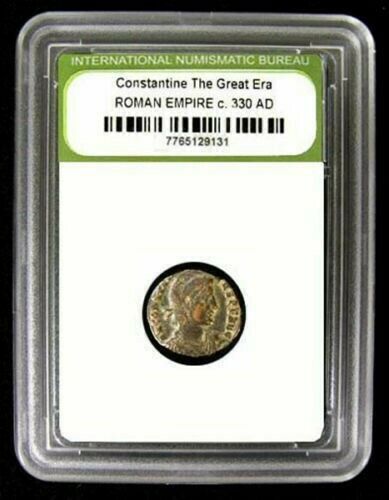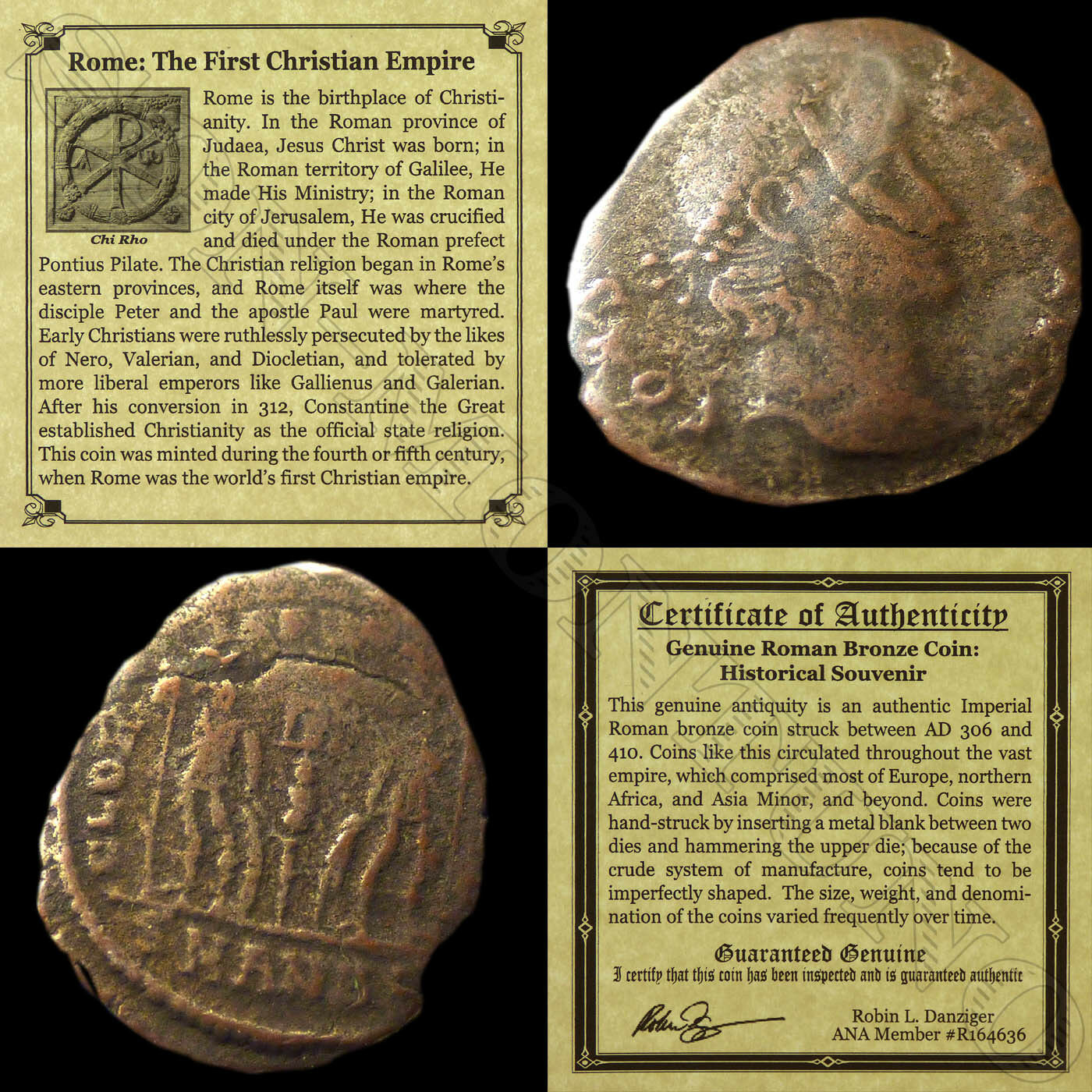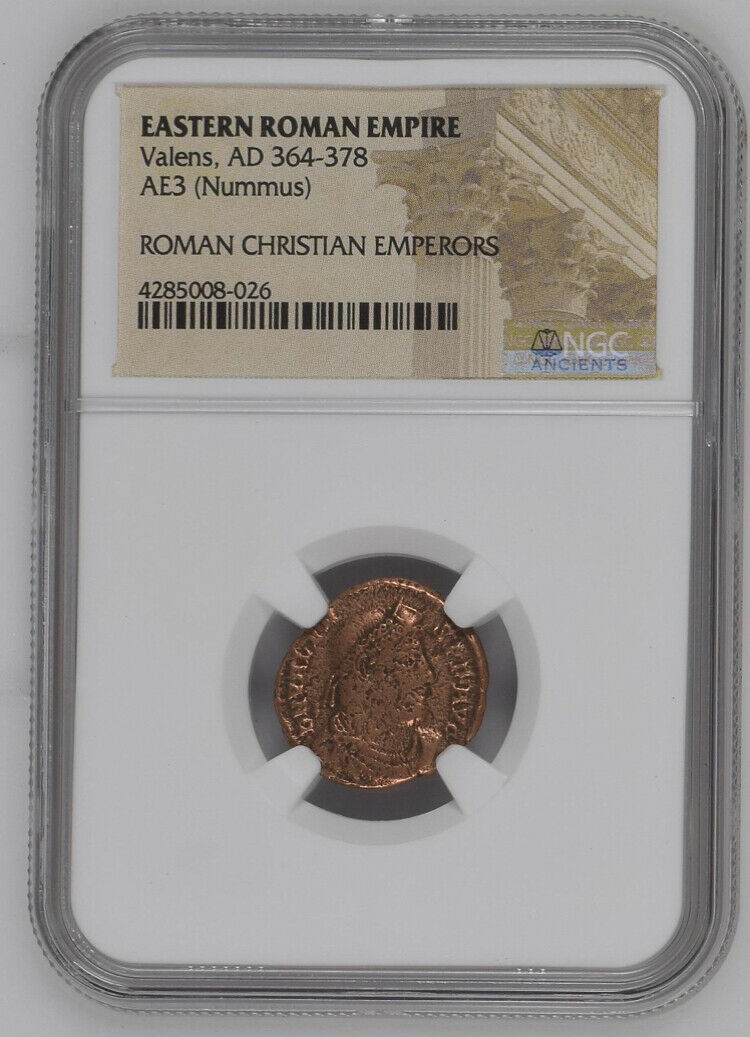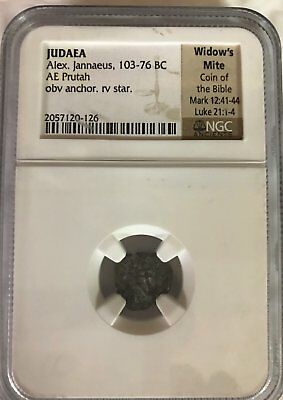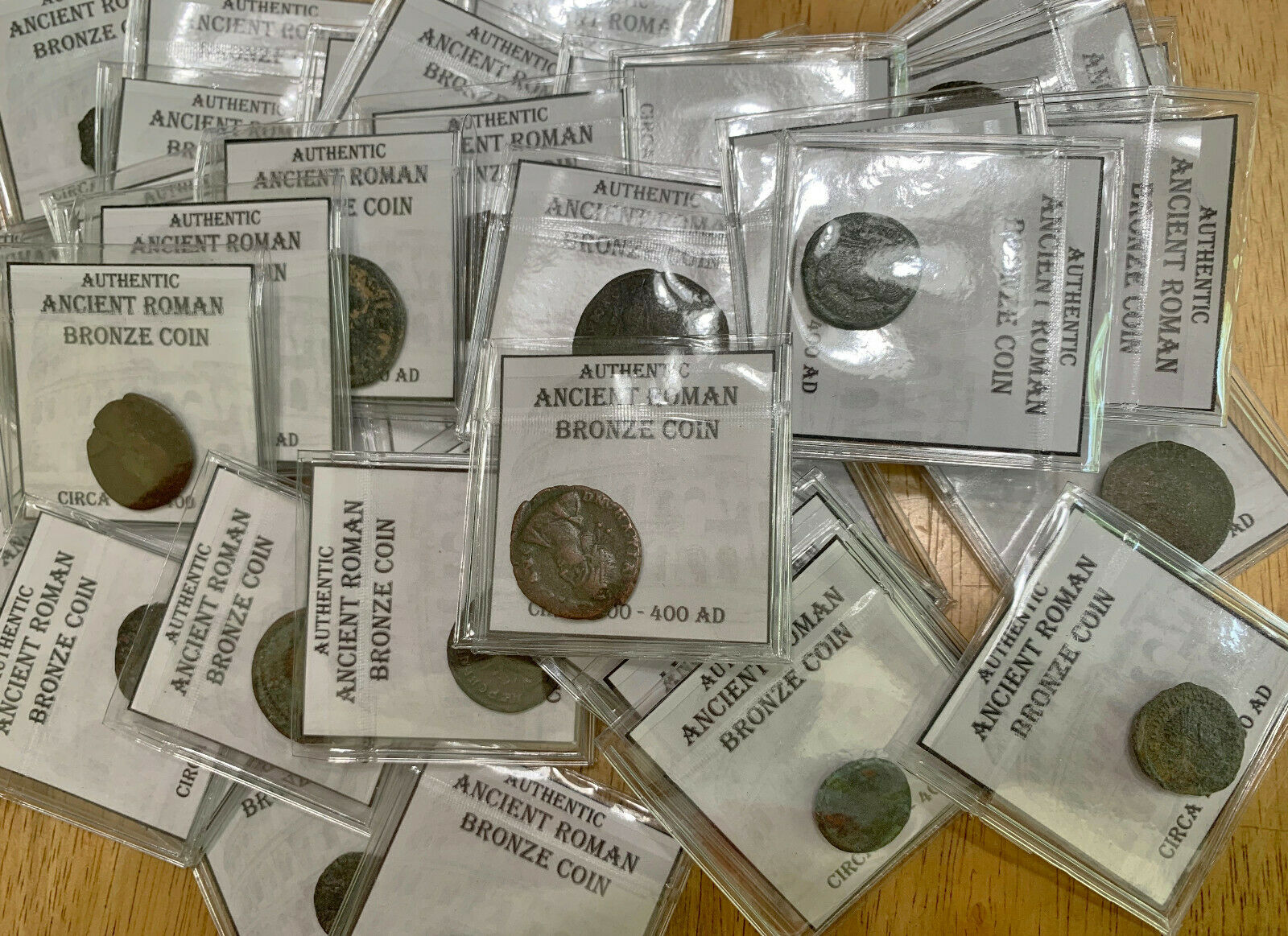-40%
Severus Alexander (AD 222-235) Roman AE bronze sestertius Emperor coin RIC 439
$ 105.6
- Description
- Size Guide
Description
Roman ImperialSeverus Alexander (AD 222-235)
Denomination
: bronze AE sestertius
Weight:
26.66 grams
Diameter
: 32 mm
Die Axis
: 12 h
Struck
: AD 225
Mint
: Rome, Italy
Obverse
: IMP CAES M AVR SEV ALEXANDER AVG, laureate and draped bust right
Reverse
: PONTIF MAX TR P IIII COS P P, emperor in military dress standing to left, holding globe and inverted spear; S - C in fields
References
: Roman Imperial Coinage (RIC) volume IV 439;
Coins of the Roman Empire in the British Museum (BMCRE) volume VI 255
Grade / Comments
: Near Very Fine, pleasant brown patina
Coins are guaranteed genuine.
Returns may be made within 14 days for any reason as long as items are unaltered. Buyer to bear cost and risk of return postage.
Biographical and historical information courtesy of De Imperatoribus Romanis - entry by Herbert W. Benario, Emory University
Introduction and Sources
"But as Alexander was a modest and dutiful youth, of only seventeen years of age, the reins of government were in the hands of two women, of his mother Mamaea, and of Maesa, his grandmother. After the death of the latter, who survived but a short time the elevation of Alexander, Mamaea remained the sole regent of her son and of the empire." (Gibbon,
Decline and Fall
, chap. 6:
Modern Library Edition
, p. 130)
"As the imperial system developed, it disclosed its various
arcana
one by one. How much does the personality of the ruler matter? Less and less, it should seem. Be he boy, buffoon, or philosopher, his conduct may not have much effect on the administration. Habit and routine took over, with groups and grades of bureaucrats at hand to fill the posts." (Syme,
Emperors and Biography
, 146)
The passages quoted above emphasize two important aspects of the principate of Severus Alexander (or Alexander Severus), his youth and the influence of women during his reign. The significance of the latter invites brief discourse about the four women known as the "Severan Julia," whose origin was Syria. Julia Domna became the second wife of Septimius Severus and bore him two sons, the later emperors Caracalla and Geta. Her role in the administration of her husband was significant, which her expansive titulature, "mother of the camp and the senate and the country," reflected. Her sister, Julia Maesa, had two daughters, each of whom produced a son who was to become emperor. Julia Soaemias was the mother of Elagabalus, and shared his fate when he was assassinated. Julia Mamaea bore Alexander, who succeeded his cousin; he was very young and hence much under the control of grandmother and mother. For the first time in its imperial history, the empire of Rome was
de facto
, though not
de iure
, governed by women.
The literary sources, while numerous, are limited in value. Chief among them, at least in scope, is the biography in the
Historia Augusta
, much the longest of all the lives in this peculiar collection. Though purporting to be the work of six authors in the early fourth century, it is now generally considered to have been produced by one author writing in the last years of this century. Spacious in its treatment of the emperor and extremely favorable to him on the whole, it has little historical merit, seeming rather an extended work of fiction. It must be used with the utmost caution.
Herodian, whose history covered the period 180-238, was a contemporary of Severus Alexander, and his coverage of the latter's reign is extensive. Another contemporary, Dio Cassius, who was consul in 229 and whose judgments would have been most valuable, is unfortunately useless here, since his history survives only in abbreviated form and covers barely a page of printed text for the whole reign (Book 80). Aurelius Victor, Eutropius, the
Epitome de Caesaribus
, and other Latin sources are extremely brief, informing us of only the occasional anecdote. Christian writers make minimal contribution; legal texts offer much instruction, particularly those dealing with or stemming from Ulpian; coins, inscriptions, papyri, and archaeology help fill the gaps left by the literary sources.
Early Life and Education
The future emperor (
PIR
2
A 1610) was born in Arca Caesarea in Phoenicia on October 1, 208 although some sources put the date three years earlier (as Gibbon assumed, see above), the son of Gessius Marcianus (
PIR
2
G 171), whose career advanced in the equestrian
cursus
, and of Julia Mamaea (
PIR
2
I 649), niece of the then empress, Julia Domna, wife of Septimius Severus. He was raised quietly and well educated, at the instance of his mother.
He came into the public eye only in 218, when, after Macrinus' murder of Caracalla and accession to the purple, he and his mother were declared
hostes publici
. In June of that year, Elagabalus defeated Macrinus and succeeded him as emperor. Alexander and Mamaea were soon rehabilitated. As his cousin's activities, religious, political, and personal, became increasingly unacceptable, Alexander was drawn ever more into public life. In mid 221, he assumed the
toga virilis
, was adopted by Elagabalus as a colleague, was granted the name
Alexander
, and elevated to the rank of
Caesar
. There had been talk that he was the illegitimate child of Caracalla, which won him support among the army, and this was confirmed, at least for public consumption, by his filiation in the official titulature back to Septimius. He was now styled
Imp. Caes. M. Aurelii Antonini Pii Felicis Aug. fil., divi Antonini Magni Pii nepos, divi Severi pronepos M. Aurelius Alexander, nobilissimus Caesar imperi et sacerdotis, princeps iuventutis
. The connection with Septimius Severus was crucial, since he was the only one of these predecessors who had been deified. Alexander was about 12½ years old. Less than a year later, on March 13, 222, with the murder of Elagabalus, Alexander was hailed as emperor by the army. He considered this date as his
dies imperii
. He became thereby the youngest emperor in Rome's history. He was immediately thereafter given the titles of
Augustus
,
pater patriae
, and
pontifex maximus
.
His Principate; Grandmother, Mother, Ulpian
Having had no experience in government, the young emperor was largely dependent upon the two senior women in his life to guide his actions.
His grandmother, Julia Maesa (
PIR
2
I 678), may well have died as early as 223, so that his mother, Julia Mamaea, played the major role in the empire's administration from early on until the end
.
The only other figures who could rival her were the two Praetorian Prefects, both eminent jurists, Ulpian (
PIR
2
D 169) and Paulus (
PIR
2
I 453), who are well-known to us because of the numerous citations of their legal views and administrative decisions preserved in the
Corpus Iuris Civilis
. Both were members of Alexander's
consilium
. Alexander attempted to restore some of the senate's prestige and functions, but with little success. He was even unable to protect Ulpian against the anger of the praetorians, who then murdered the jurist in 223
.
Had his principate been peaceful, he might have developed into a significant emperor, certainly in comparison with his immediate predecessors. He was married once, in 225 to
Sallustia Orbiana (
PIR
S 252), who received the official titulature
Sallustia Barbia Orbiana Augusta
, but she was banished to Libya two years later
.
Her father,
L. Seius Sallustius (
PIR
2
M 27), was perhaps raised to the rank of
Caesar
by Alexander and was put to death in 227 on a charge of attempted murder of the emperor. The only other recorded uprising against Alexander is that of
Taurinus (
PIR
T 29), who was hailed as
Augustus
but drowned himself in the Euphrates
.
According to the
HA
life, Alexander was a "good" person, and his mother certainly attempted to guide him well, but much of the last decade of his reign was preoccupied with serious military threats against the empire's prestige, nay existence. In those dangerous circumstances, his abilities, which had not earlier been honed, proved inadequate.
Domestic Policy
Perhaps the greatest service which Alexander furnished Rome, certainly at the beginning of his reign, was the return to a sense of sanity and tradition after the madness and fanaticism of Elagabalus. He is said to have honored and worshipped a variety of individuals, including Christ.
His amiability assisted his relationship with the senate, which gained in honor under him without any real increase in its power. Besides jurists in high office, literary figures were also so distinguished; Marius Maximus, the biographer, and Dio Cassius, the historian, gained second consulships, the former in 223, the latter in 229.
The emperor's building program made its mark upon the face of Rome. The last of the eleven great aqueducts, the
aqua Alexandrina
, was put into service in 226; he also rebuilt the
thermae Neronianae
in the Campus Martius in the following year and gave them his own name. Of the other constructions, perhaps the most intriguing are the
Diaetae Mammaeae,
apartments which he built for his mother on the Palatine
.
The Persian and German Wars
The first great external challenge appeared in the east, where the Parthian dynasty, which had ruled the Iranian plateau and other large areas for centuries, and who for long had been one of Rome's great rivals, was overthrown by the Persian family of the Sassanids by 227. They aspired to restore their domain to include all the Asian lands which had been ruled in the glory days of the Persian Empire. Since this included Asia Minor as well as all other eastern provinces, the stage was set for continuing clashes with Rome
.
These began late in the decade, with significant success early on for the Sassanids. But Rome gradually developed a defense against these incursions, and ultimately the emperor, with his mother and staff, went to the east in 231. There actual military command rested in the hands of his generals, but his presence gave additional weight to the empire's policy. Persia's early successes soon faded as Rome's armies brought their power and experience to bear. The result was an acceptance of the
status quo
rather than a settlement between the parties. This occurred in 233 and Alexander returned to Rome. His presence in the west was required by a German threat, particularly along the Rhine, where the tribes took advantage of the withdrawal of Roman troops for the eastern war
.
In 234, Alexander and Julia Mammaea moved to Moguntiacum (Mainz), the capital of Upper Germany. The military situation had improved with the return of troops from the east, and an ambitious offensive campaign was planned, for which a bridge was built across the Rhine. But Alexander preferred to negotiate for peace by buying off the enemy. This policy outraged the soldiers, who mutinied in mid March 235 and killed the emperor and his mother.
He had reached the age of 26½ years and had been emperor for almost precisely half his life.
He was deified by the senate and received other posthumous honors.
With the accession of Maximinus Thrax, the Severan dynasty came to an end.
Death and Evaluation
Tacitus' famous dictum about Galba, that he was properly considered
capax imperii
, capable of being emperor, until he showed, when emperor, that he was not, could never have been applied to Severus Alexander. A child when chance brought him to the principate, with only two recommendations, that he was different from Elagabalus and that he was part of the Severan family, he proved to be inadequate for the challenges of the time. Military experience was the prime attribute of an emperor now, which Alexander did not have, and that lack ultimately cost him his life
.
Guided by his mother and employing the services of distinguished men, he returned dignity to the imperial household and to the state
.
He did the best he could, but that best was not good enough in the early decades of the third century A.D., with the great threats from east and north challenging Rome's primacy and, indeed, existence.


